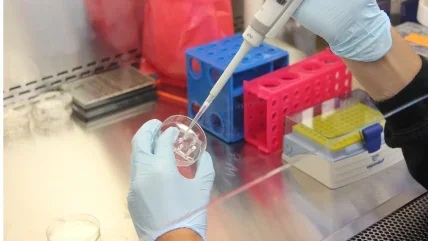
Be Biopharma (Be Bio), a US-based developer of engineered B-cell medicines (BCMs), has received the US Food and Drug Administration (FDA) Orphan Drug Designation for BE-101.
BE-101 is the company’s novel engineered BCM candidate currently being developed for the treatment of Hemophilia B.
Be Bio is planning to begin its Phase ½ BeCoMe-9 study in the second half of this year, to evaluate BE-101 in adults with severe or moderately severe Hemophilia B.
BCMs are a new class of cellular medicines, where B Cells are engineered to produce therapeutic proteins of interest.
They are durable, allogeneic, redosable, and can be administered without pre-conditioning.
BCMs could transform therapeutic biologics with applications across protein classes, patient populations, and therapeutic areas, said the biotech company.
Be Bio CEO Joanne Smith-Farrell said: “Despite recent advances, patients with hemophilia B still suffer from bleeding events, joint damage and chronic pain.
“BE-101 has the potential to be the first and only Factor IX replacement therapy that is extremely durable, re-dosable and titratable, representing an opportunity to dramatically improve the treatment paradigm in hemophilia B.
“The Orphan Drug Designation reinforces the potential of this therapy and underscores the need for improved therapeutic options for these patients.”
Hemophilia B is an X-linked recessive bleeding disorder caused by mutations in the gene that encodes for the FIX protein, an essential enzyme in the coagulation cascade.
The disease can lead to spontaneous bleeding along with bleeding following injuries or surgery.
BE-101 is engineered to insert the human FIX gene into primary human B cells, allowing for the expression of active FIX for the treatment of Hemophilia B.
The drug has the potential to express sustained therapeutic FIX activity levels with a single infusion with the flexibility to be re-dosed if needed.
Currently, FIX replacement regimens can maintain therapeutic FIX activity levels while reducing dosing frequency, with a considerable infusion burden on them.
The FDA grants Orphan Drug Designation to drugs or biologics designed to treat rare diseases or conditions that affect less than 200,000 people in the US.
The designation offers several significant advantages, including exclusive marketing rights after approval, exemption from user fees, and eligibility for tax credits on qualified clinical trials.






